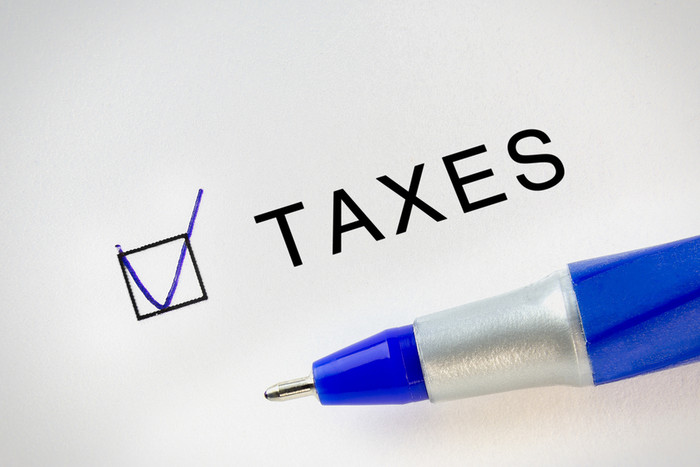Do I Have To Pay Tax On Casino Winnings Uk

If you live in the United Kingdom and enjoy gambling, then you’ve probably wondered at some point if you should be paying taxes to make sure that you are on the legal side of things.
Whether we’re talking about lottery winning taxes, casino winnings taxes for slots, table games or even live casino, you need to know what the legal procedures are so that you never get negatively surprised by anything.
The tax-free status of gambling in the UK has not always been in place, however, and until relatively recently punters did have to pay tax on their bets/winnings. Betting shops were legalised in the UK in the 1960s and from then until 2001 there was a 9% tax levied against bettors. Tax on Bank Interest. Although any winnings gained from gambling be it online, in a high street bookmaker or in a casino, are exempt from tax in the UK, you may be in a situation where some interest earned on those winnings whilst they are in a bank account, savings account, trust fund or bond will be taxable.
So how much money can you win from gambling without paying taxes in the UK? The short answer? All of it. Gambling winnings aren’t taxable in the UK. While other countries will tax anywhere between 1% and 25%, the UK won’t care if you’ve won £10 or £10.000.000. No matter what kind of gambling you’re doing from bingo to horse racing and everything in between, there will be no gambling winning tax in the UK.
Similarly, there are inheritance taxes in the UK, so if your gambling winnings are passed on to someone else, tax implications apply. Winners in France pay 12% tax on any win over 1,500 Euros. Fortunately for professional gamblers, the tax authority in the UK (the HMRC) does not officially recognise ‘professional gambling’ as a taxable trade – meaning that their winnings are tax-free just like the winnings of any other player. HMRC have this to say on the matter.
Even if you’re a UK citizen and want to gamble abroad, most times you shouldn’t worry about taxes because the UK has treaties with most countries, so you won’t be affected by their tax requirements.
Gambling wasn’t always free in the UK and the gambling history is quite complicated. Betting first started being regulated in 1960 but there was a 9% tax. It was abolished in 2001 and replaced with a 15% tax on bookmakers, but if the bookmaker wasn’t based in the UK they didn’t have to pay it which meant losing revenue to offshore sites.
The amendment to the 2005 Gambling Act in 2014 chanced things so that the 15% tax was on all gross profits at the point of consumption to include offshore companies as well. This meant that operating in the UK without a UK licence would be illegal. The thing is that the tax is paid by operators, so bettors don’t need to worry about it.
There are taxes related to gambling that will affect you if you live in the UK. Bigger wins can be subject to income tax that’s 18% and there’s also an inheritance tax when you die. The threshold for this one is £325.000 and everything bigger than that will be subject to a 40% tax. Even gifts are subject to tax and you can give up £3000 each year tax-free to any one person, but if you die within 7 years they will be taxed on it.
All in all, there is no tax on gambling, and you might want to look for non gamstop casinos, but there are different taxes you should take into account. The best thing to do if you end up winning big is to look for a financial advisor to help protect your money.
All countries and governments have their own online gambling tax policies and legislation so we need to look at this question from a global perspective. Firstly we’ll cover the situation in the UK and following that look at how things may differ in the rest of the world.
Do you have to pay tax on your gambling winnings?
UK Gambling Taxes
Key Points
- All winnings either online or offline are tax free!
- Any betting tax abolished in 2001 by Gordon Brown.
- Tax used to be on bookies but they passed to punters.
- Bookmakers must now pay 15% POI tax but not punters.
- POI tax on any games of chance increased from 15% to 21% but again not for punters.
In the UK any and all winnings from gambling – either online or at betting shops – are entirely tax free and do not need to be declared as part of any tax return.
This has been the case since the then Chancellor of the Exchequer Gordon Brown’s budget of 2001, when he abolished Betting Duty which had stood at 6.75%. That duty was removed in an attempt to persuade bookmakers not to move their operations overseas and therefore take jobs and revenue away from the UK economy.
All of that is not to say that there is no tax involved when it comes to gambling in the UK, however, and there is a ‘point of consumption’ tax related to the activity. This does not affect punters themselves, though, and will be dealt with separately further down this page.
Will the situation ever change? Generally speaking there is little chance that this situation will be reversed, either, as the UK tax system is simply not built in such a way that taxing gambling winnings would be viable. This is the case as it is fairly standard within the system that if tax is levied on the income or profit made through an activity, then there must also be an allowance made against losses through the same activity.
With gambling being an activity where overall more losses are made by punters than winnings, therefore, such a change in the tax legislation would cost the UK government revenue. As a result, it is quite simply not something which would be considered. Your betting, casino, slot machine, poker and bingo winnings are yours to keep tax free.
What About Professional Gamblers?
It may seem logical that the tax situation would be different for professional gamblers than it is for occasional punters. When it comes to pure winnings from betting, however, that quite simply is not the case. As we have discussed above these winnings are not taxable and this remains true even for a ‘professional gambler’. That is because HMRC do not recognise professional gambling as a taxable trade.
In fact, within their most up to date ‘Business Income Manual’, HMRC clearly define their position on professional gambling:
‘The fact that a taxpayer has a system by which they place their bets, or that they are sufficiently successful to earn a living by gambling does not make their activities a trade.’ BIM22017
Gambling winnings, therefore, remain free of tax regardless of whether they make up an individual’s main source of income. Where the situation can get a little more complicated, however, is in the case of income related to gambling but not actually direct winnings from gambling. Appearance fees paid to poker players for playing at certain tournaments, for instance, represent payment for a service provided to the tournament organisers and as such may be taxable.
Away from the UK, too, tax laws and legislation do differ and it would benefit a professional gambler outside of the UK to research the specific rules and regulations within their own country.
Do You Have To Pay Tax On Gambling Winnings Uk
UK Point of Consumption Tax

As we mentioned earlier, Betting Duty for gamblers was abolished in 2001 and was at that time replaced by a 15% tax on gross profits for bookmakers and gambling providers. That tax was initially charged on a ‘point of supply’ basis, meaning that if the bookmaker or company were not based in the UK, then they were not liable. This situation has more recently changed, however.
From the latter part of 2014, the tax on bookmakers’ profits was changed to a ‘point of consumption’ tax by a combination of the Gambling (Licensing and Advertising) Act 2014 and by the introduction of ‘Remote Gaming Duty’. This means that regardless of where they themselves are based, providers must pay a 15% duty on any bets placed by UK customers.

In the 2018 budget chancellor George Osborne announced that the point of consumption tax would rise from 15% up to 21% for all games of chance but sports betting would remain at 15%, for now.
Gambling Taxes In The Rest Of The World
| Country | Taxes |
|---|---|
| Austria | No |
| Australia | No |
| Australia | No |
| Belgium | No |
| Bulgaria | No |
| Canada | No |
| Czech Republic | No |
| Denmark | No |
| Finland | No |
| France | 2% on poker cash pots, 7.5% on sports (+1.8% levy) and 7.5% on horse racing (+8% levy) |
| Germany | No |
| Greece | No except lottery at 10% |
| Hungary | No |
| Ireland | Bookies pay 1% on all bets – not winnings. |
| Italy | No |
| Kenya | No – bookies must pay 7.5% on their winnings. |
| Latvia | 25% |
| Luxembourg | No |
| Macau | 40% |
| Malta | No |
| Nigeria | 20% |
| Netherlands | No expect lottery at 29% above €454 |
| Portugal | No expect lottery at up to 35% |
| Romania | 1% up to 66,750 RON, additional 16% of surpassing margin up to 445,000, additional 25% of surpassing margin over 445,000 RON |
| Slovenia | No expect lottery at 50% if more than €4,000 |
| Spain | No but must declare winnings as income for taxation |
| Sweden | No |
| South Africa | No except 6% on horse racing. |
| UK | No |
| USA | 25% |
Do You Pay Tax On Casino Winnings Uk
As the above table shows, where various types of gambling are legal there are a variety of different attitudes towards taxation on winnings from those forms of betting. If your country is not listed then it’s likely gambling is not strictly legal and there is therefore no taxation laws.